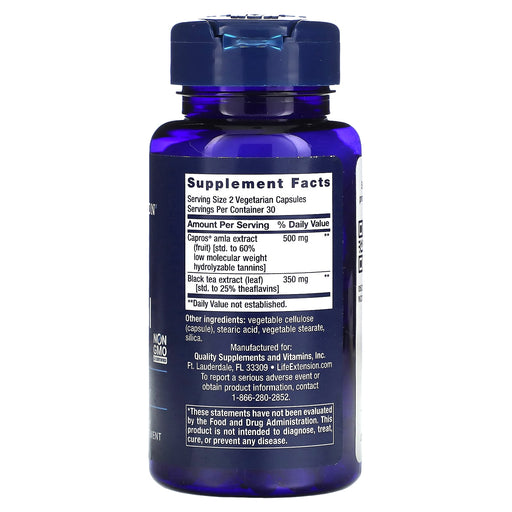
Witness the Superfruit Power of Amla Supplements
Amla, also known as Indian gooseberry or Phyllanthus emblica, is a small, tart fruit native to India that has been revered for its medicinal properties for centuries. Packed with an impressive array of nutrients, antioxidants, and bioactive compounds, amla supplements offer a convenient way to harness the health-promoting benefits of this superfruit.
The Nutritional Profile of Amla
Amla is renowned for its exceptionally high vitamin C content, containing up to 20 times more vitamin C than oranges by weight. This potent antioxidant helps protect cells from oxidative stress, supports immune function, and promotes healthy skin and hair.
In addition to vitamin C, amla is a rich source of other essential nutrients, including:
- Polyphenols: Powerful antioxidants that help combat inflammation and support overall health.
- Tannins: Compounds that have astringent and anti-inflammatory properties, supporting digestive health and skin wellness.
- Flavonoids: Plant compounds that offer additional antioxidant and anti-inflammatory benefits.
- Vitamins and Minerals: Amla contains vitamin A, vitamin E, and vitamin B-complex, as well as minerals like calcium, iron, and phosphorus.
The Benefits of Amla Supplementation
Incorporating amla supplements into your daily routine can offer a wide range of potential benefits for overall health and well-being. Some of the key advantages of amla supplementation include:
- Antioxidant Protection: The high concentration of vitamin C and other antioxidants in amla helps neutralize harmful free radicals, reducing oxidative stress and supporting healthy aging.
- Immune Support: Vitamin C and other compounds in amla help bolster the immune system, enhancing the body's natural defenses against pathogens and disease.
- Digestive Health: The tannins and fiber in amla support digestive regularity, promote gut health, and may help alleviate occasional digestive discomfort.
- Cardiovascular Wellness: Studies suggest that amla may help support healthy cholesterol levels, blood pressure, and overall heart health.
- Blood Sugar Management: Amla has been shown to have potential benefits for blood sugar regulation, making it a valuable supplement for those concerned with metabolic health.
Choosing the Best Amla Supplement
When selecting an amla supplement, it's essential to choose a high-quality product from a trusted brand. Consider the following factors:
- Form and Concentration: Amla supplements come in various forms, including powders, capsules, and extracts. Look for products that provide a concentrated, standardized dose of amla's active compounds.
- Purity and Quality: Choose supplements that are made from organic, sustainably sourced amla and are free from artificial additives, fillers, and contaminants.
- Brand Reputation: Opt for supplements from reputable brands with a history of producing high-quality, effective amla products and a commitment to transparency and safety.
- Synergistic Ingredients: Some amla supplements may include additional ingredients that complement its benefits, such as turmeric, ginger, or black pepper. Consider your individual needs and preferences when selecting a product.
Maximizing the Benefits of Amla
To get the most out of your amla supplement, consider the following tips:
- Take it consistently: Amla works best when taken regularly over time. Incorporate your supplement into your daily routine for optimal results.
- Pair with a balanced diet: While amla can provide numerous health benefits, it's best consumed as part of a balanced, nutrient-rich diet.
- Stay hydrated: Adequate hydration is essential for the proper absorption and utilization of nutrients in the body.
- Follow dosage instructions: Adhere to the recommended dosage on the product label or as advised by a healthcare professional.
Experience the Superfruit Power of Amla
If you're looking to support your antioxidant defenses, immune health, digestive wellness, and overall vitality, amla supplements may be the perfect addition to your wellness regimen.
Delve into our selection of high-quality amla supplements and discover the power of this ancient superfruit for yourself. With a commitment to purity, potency, and your individual needs, we're here to help you experience the many benefits of amla and achieve optimal health and well-being.
Frequently Asked Questions about Amla
1. What does amla supplement do?
Amla supplements offer a range of potential health benefits, including:
- Supporting immune function
- Promoting healthy digestion
- Supporting cardiovascular health
- Regulating blood sugar levels
- Providing potent antioxidant protection
2. What happens when you take amla everyday?
Taking amla supplements daily may provide several benefits, such as:
- Improved digestion and regularity
- Enhanced immune function
- Better blood sugar control
- Reduced inflammation
- Improved skin and hair health
However, individual results may vary, and it's essential to follow the recommended dosage instructions and consult with a healthcare professional before starting any new supplement regimen.
3. Who should not take amla?
While amla is generally safe for most people, some individuals should exercise caution or avoid it, including:
- Pregnant or breastfeeding women, due to limited safety data
- People with bleeding disorders or taking blood-thinning medications, as amla may increase the risk of bleeding
- People with diabetes or taking diabetes medications, as amla may lower blood sugar levels
- People with iron overload disorders (hemochromatosis), as amla may increase iron absorption
It's essential to consult with a healthcare professional before taking amla supplements, especially if you have a pre-existing health condition or are taking medications.
4. What is amla used to cure?
Amla has been traditionally used to support various aspects of health, including:
- Digestive health (e.g., constipation, diarrhea)
- Immune function
- Cardiovascular health
- Blood sugar regulation
- Skin and hair health
However, while amla may offer potential health benefits, it should not be considered a cure for any specific condition. Always consult with a healthcare professional for proper diagnosis and treatment of health issues.
5. What are the disadvantages of taking amla?
While amla is generally safe and well-tolerated, some potential disadvantages or side effects may include:
- Digestive discomfort (e.g., diarrhea or upset stomach) in some people
- Interactions with certain medications (e.g., blood thinners or diabetes drugs)
- Low blood sugar levels, which may be a concern for people with diabetes
- Increased iron absorption, which may be problematic for people with iron overload disorders
It's essential to consult with a healthcare professional before taking amla supplements, especially if you have a pre-existing health condition or are taking medications.
6. What are the side effects of amla?
Amla is generally well-tolerated, but some people may experience mild side effects, such as:
- Digestive discomfort (e.g., diarrhea or upset stomach)
- Nausea
- Headache
- Allergic reactions (rare)
If you experience any severe or persistent side effects, discontinue use and consult with a healthcare professional.
7. When should we avoid amla?
You should avoid taking amla supplements or consult with a healthcare professional before use if you:
- Are pregnant or breastfeeding
- Have a bleeding disorder or are taking blood-thinning medications
- Have diabetes or are taking diabetes medications
- Have an iron overload disorder (hemochromatosis)
- Are scheduled for surgery, as amla may increase the risk of bleeding
- Are allergic to amla or any of its components
8. Does amla affect hormones?
Some studies suggest that amla may have an effect on certain hormones, such as:
- Improving insulin sensitivity and reducing blood sugar levels
- Modulating thyroid function
- Potentially influencing reproductive hormones
However, more research is needed to fully understand the effects of amla on hormonal balance, and individual results may vary. It's essential to consult with a healthcare professional before taking amla supplements, especially if you have a pre-existing hormonal condition or are taking hormone-related medications.
9. Is amla safe for kidneys?
Amla is generally considered safe for kidney health when consumed in recommended doses. Some studies even suggest that amla may have potential benefits for kidney function, such as:
- Supporting healthy uric acid levels
- Reducing oxidative stress in the kidneys
- Promoting healthy blood flow to the kidneys
However, if you have a pre-existing kidney condition or are taking medications that affect kidney function, it's essential to consult with a healthcare professional before taking amla supplements.










